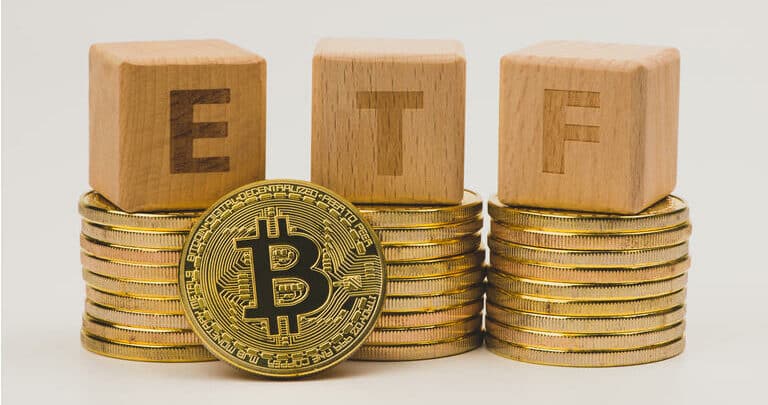Decoding IRS Tax Guidelines for Bitcoin ETF Investments

With evolving cryptocurrency investment scenarios, Bitcoin exchange-traded Funds (ETFs) have become the bridge between typical set financial worlds and a newly emerging digital asset marketplace. These investment vehicles represent the ideal way for investors to capture exposure to Bitcoin’s price movements but are done in a way to avoid complexities arising from direct ownership. However, Bitcoin ETF’s taxation treatment presents a labyrinth of regulations such that individual and institutional investors must maneuver adeptly.
Understanding the Intricacies of Bitcoin ETFs
Bitcoin ETFs copy the price volatility of Bitcoin, but their tax treatment is very different from owning the cryptocurrency directly. Of the critical disparities, one can single out which lies in one feature of ETFs: such funds are similar to stocks by the fact that they are traded on stock exchanges, and this allows investors of the secondary market to make a purchase or sell shares at prices of the market on the day of trading. While Bitcoin Futures ETFs invest in futures contracts that peg their value to the anticipated future price of Bitcoin, Spot Bitcoin, along with holding actual Bitcoin, directly links their value to Bitcoin’s market price.
The taxation framework for these ETFs in the United States adheres to capital gains tax principles, with the duration of holding determining the tax rate applied. Short-term gains from assets held for a year or less are taxed more heavily than long-term gains. Interestingly, due to its in-kind nature, creating and redeeming ETF shares – a mechanism crucial for maintaining liquidity and market stability – is typically not considered a taxable event. However, this is not the case with Bitcoin ETFs, where the sale of underlying Bitcoin to meet redemptions could trigger taxable events for the fund.
Global Crypto Tax Compliance: A Challenge Yet Unmet
The global landscape of cryptocurrency taxation is marked by inconsistency and complexity. According to a PricewaterhouseCoopers report, the noncompliance rate related to the reporting and declaration of crypto-asset holdings was almost 55% and fluctuated to 95%. Different jurisdictions take the issue of cryptocurrency taxation differently, from how gains are taken as capital in some areas to how they are viewed as income. The European Union wants to harmonize a united framework of crypto taxation, while countries such as the UK, Australia, and Japan categorize crypto gains under capital gains tax.
The OECD’s Crypto Asset Reporting Framework (CARF) represents a significant step towards standardizing digital asset taxation, aiming to foster transparency across its member states. Yet, the practical application of these guidelines remains a maze of regulatory compliance for investors worldwide.
The Taxation Dichotomy: ETFs versus Direct Bitcoin Holdings
For investors, the choice between holding Bitcoin ETFs and direct Bitcoin positions is not merely a matter of investment strategy but also tax implications. Direct Bitcoin holders are tasked with meticulous record-keeping to accurately report gains or losses, a process streamlined for Bitcoin ETF investors through fund-managed reports. Moreover, Bitcoin ETFs potentially offer tax efficiencies by reducing the number of taxable events, an advantage not afforded by direct Bitcoin transactions, which are taxed upon each buy and sell action.
The creation and redemption mechanism of Bitcoin ETFs, while typically non-taxable in the context of traditional assets, introduces a taxable dynamic when involving the sale of Bitcoin. This underscores the nuanced differences between spot and futures Bitcoin ETFs in their tax treatment and operational mechanics.
Institutional versus Retail: A Tax Planning Divide
The complexity of crypto taxation extends beyond the nature of the investment to the investor’s profile. With their sophisticated tax planning capabilities, institutional investors navigate these waters with a degree of agility that retail investors often find challenging. The latter group faces hurdles in record-keeping and reporting, exacerbated by frequent trading activities. Despite facing similar capital gains tax rates, the scale and impact of institutional investments introduce additional layers of compliance and reporting requirements.
This disparity underscores the need for both retail and institutional investors to approach Bitcoin ETF taxation with informed strategies, acknowledging the pivotal role of understanding tax obligations in maximizing investment returns.
Provoking Thought: A Call for Clarity and Consistency
As the world shifts towards a digitized financial ecosystem, a significant question surfaces: How can policymakers and regulators in those countries that have embraced digital assets unite between these two asset spaces to create a coherent, transparent taxation framework? This question is not just challenging the status quo but calls for pairwise collaboration in decent attempts to demystify complications surrounding taxation on every level of investor.
In conclusion, while Bitcoin ETFs offer an attractive proposition for those looking to invest in cryptocurrency without the direct holding complexities, the tax implications are a labyrinth of regulations that require careful navigation. The need for clarity and consistency in global crypto taxation has never been more critical as investors seek to reconcile the innovative potential of digital assets with the pragmatic realities of tax obligations.
Tokenhell produces content exposure for over 5,000 crypto companies and you can be one of them too! Contact at info@tokenhell.com if you have any questions. Cryptocurrencies are highly volatile, conduct your own research before making any investment decisions. Some of the posts on this website are guest posts or paid posts that are not written by Tokenhell authors (namely Crypto Cable , Sponsored Articles and Press Release content) and the views expressed in these types of posts do not reflect the views of this website. Tokenhell is not responsible for the content, accuracy, quality, advertising, products or any other content or banners (ad space) posted on the site. Read full terms and conditions / disclaimer.




